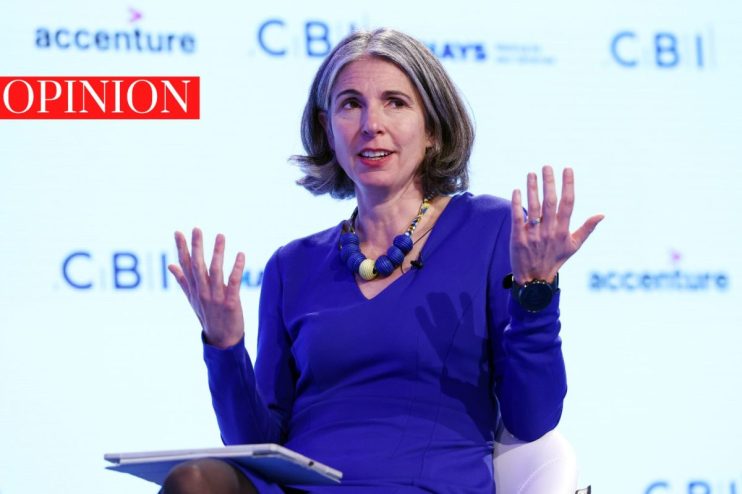The CBI still need to have a voice with senior politicians in the run up to the next election

As both Conservatives and Labour try to prove they are the true part of business, the CBI has a role to play in being the voice of the industry, writes Rain Newton-Smith
After a tough couple of weeks, it was great to be back doing what we do best – meeting politicians and policymakers to talk about the big issues of the day. The enormous privilege of working with brilliant businesses across the country is something that is never lost on me. With an important election ahead, it’s more important that their voices are heard by crucial decision-makers across the political spectrum.
At both Conservative and Labour conferences this year, parties strived to burnish their credentials with business. In makeshift TV studios across the conference floor, we heard politicians insist countless times they are “the real party of business.”
For an organisation that represents businesses of every size and sector across the UK, the sight of government and opposition parties outcompeting each other on pro-business messaging is a welcome sight. It’s also a recognition of the role of businesses in addressing sluggish productivity and boosting growth. Without creating the conditions firms need to grow and invest, promises to improve public services and boost living standards will be left unfulfilled.
In meeting rooms well away from the glare of the TV studios, there was detailed discussion about the economy taking place. Again and again, we heard the same diagnosis: the UK remains the best place in the world to start a business, but when it comes to that next stage – scaling-up – we slip down the league table.
Creating innovative startups to market is essential for an economy with our world-leading level of ambition. But, for the country to derive the greatest possible benefits from startup companies, we need to nurture them into “scaleups” and then, hopefully, on to become our next generation of billion-dollar unicorn companies.
Because nothing gets investors excited like unicorns. That is, until we start talking about decacorns – those startups valued at more than $10bn. As the world’s third trillion-dollar tech market behind the US and China, the UK has a great story to tell. We can already boast over a hundred unicorns – generating £12.3bn of GVA for the economy every year.
According to new research commissioned by the CBI from OC&C, and expanded on by CBI Economics, we have also produced nine decacorns since 1990. They are spread across regions and sectors, with household names like insurance provider Admiral, and newer firms like Fintech leader Revolut.
Those decacorns contribute £4.6bn to the UK every year. The majority of the 107,000 jobs they have created are located outside of London and the South East. They are a clear recipe for spreading prosperity across the country.
Now just imagine what could be achieved if we could take even more promising firms through the precarious scaleup journey. If the UK produced 100 decacorns, we could create an extra £74bn to the economy.
But it’s also a prize that our international rivals are desperate to seize from us. Countries like France are actively seeking to grow their innovative scaleups, and many UK firms are tempted to move to the US.
Access to finance is key. Many of our larger scaleups struggle to raise the finance they need, and then when it comes to listing publicly, many firms opt for the US over London.
We need to change that picture. As a country, we need to be more future focussed. The fintech sector is a good example of looking ahead: when the Financial Conduct Authority created innovations such as sandboxes and open banking, it made it possible for game-changing companies to flourish and grow.
Party conferences give a good glimpse of high politics and soaring rhetoric, but it’s only once the delegates go home that the hard work truly starts. For politicians; words to be more than echoes in now empty conference halls, government and opposition parties must follow through on commitments and plans, delivering a coherent and compelling economic vision for the country.
